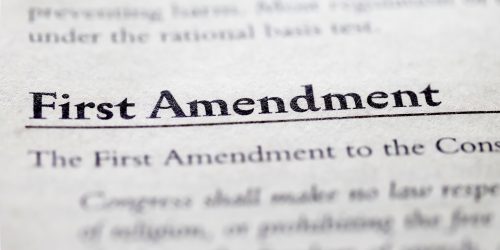
Is it legal for a church school to require its teachers to be church members?
Yes. Generally, Title VII of the Civil Rights Act of 1964 prohibits an employer from discriminating against an employee based on religion in hiring, firing, or other employment actions.
However, there is a special exemption to this law for religious organizations. Under sections 702 and 703 of Title VII, “a religious corporation, association, educational institution, or society,” is permitted to hire individuals of that particular religion in order to carry out the work of the religious organization. This exemption allows religious organizations to hire employees who share the same religious beliefs without facing challenges under Title VII of religious discrimination.
In the beginning, the religious organization exception started off narrowly defining which positions the exception applied to; however, over the years it has been broadened to cover every job position available at a religious organization.
This exemption is based on the first amendment of the United States Constitution which states that “Congress shall make no law respecting an establishment of religion, or prohibiting the free exercise thereof.” Based on the free exercise clause, churches and other religious organizations should be able to operate without the government interfering in how they operate. And the hiring of employees is a key part of how religious organizations operate and fulfill their religious mission. This concept of religious organizations operating free of government interference is often referred to as the ecclesiastical abstention doctrine or church autonomy doctrine.
It’s clear to see that religious organizations may have a reason for requiring employees to adhere to certain religious practices and values. This is particularly true in our schools, where religion and biblical values are infused into the teaching curriculum. Without the protections found in Title VII’s exception, a church school could be required to hire someone who didn’t share the doctrinal beliefs of the church. As a somewhat extreme example, a school might be required to hire someone who identifies as an atheist to teach as an instructor of religion. If a school or other religious organization was forced to hire employees who don’t share or adhere to the religious doctrinal views of the organization, this could have a detrimental effect on furthering the religious mission.
In recent years various courts have reexamined and sometimes limited the application of the church autonomy doctrine and coreligionist hiring, most recently in a court case out of Maryland. It is foreseeable that this issue will continue making its way through the courts as religious organizations continue to enforce their first amendment rights.
Jennifer Gray-Woods is the Lake Union legal counsel, as well as its Public Affairs and Religious Liberty director.